DNVN - Research from NASA's James Webb telescope has just been published, making a remarkable discovery, showing that the expansion rate of the universe is 8% faster than previously estimated.
This discovery raises an important question in astronomy: Are there as yet unknown factors, such as the influence of dark matter or dark energy, influencing this expansion rate?
The James Webb Space Telescope, the most powerful telescope ever built, has provided precise data to confirm Hubble's findings on the expansion rate of the universe, or "Hubble Tension." The finding disproves the theory that Hubble's technical flaws could be falsifying the data, and raises questions about an unexplained factor in cosmology.
The report, published on December 9 in the Astrophysical Journal, said that the current expansion rate of the universe is about 8% higher than calculations based on initial conditions and the evolution of the universe over the past billions of years. Adam Riess, one of the main authors and winner of the 2011 Nobel Prize in Physics, affirmed that this shows that humanity still has many things that are not understood about the universe.
"We cannot explain why the universe is expanding so rapidly. Our current understanding is very limited, especially regarding dark matter and dark energy - two elements that make up 96% of the universe. This is an urgent problem that needs to be solved," said Mr. Riess.
Dark matter, which makes up 27% of the universe, is invisible and cannot be directly observed, but scientists can detect it through the gravitational pull it exerts on other objects. Meanwhile, dark energy, which makes up 69% of the universe, is thought to be the main cause of the accelerated expansion, counteracting the pull of gravity.
One big mystery remains unsolved: Are there undetected elements within dark matter and dark energy, or is there some new physical phenomenon affecting the rate of expansion?
Researchers at Johns Hopkins University used three measurements to determine the distance to distant galaxies, based on observations of Cepheids. The measurements from James Webb and Hubble matched perfectly, strengthening evidence that the expansion rate of the universe is far greater than predicted by traditional theory.
When calculating the Hubble constant – a measure of how fast the universe is expanding – the standard theory predicts a value of between 67 and 68 km/s/Mpc. However, data from both telescopes show a value of as much as 73 km/s/Mpc, with a range of between 70 and 76 km/s/Mpc.
Riess said that to address this phenomenon, scientists need to collect more data to determine the extent of the deviation in the measurement values.
While many questions remain unanswered, the study underscores the need for continued data collection and further research. Future discoveries could radically change humanity’s understanding of the universe and the mystical forces that govern its existence.
Ganoderma (t/h)
Source: https://doanhnghiepvn.vn/cong-nghe/kinh-vien-vong-james-webb-phat-hien-vu-tru-mo-rong-nhanh-hon-du-doan/20241211101040156


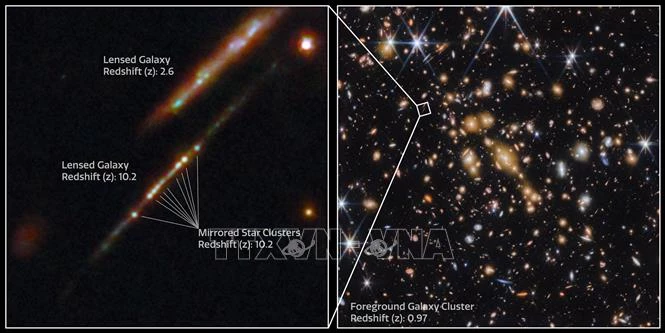

![[Photo] Hanoi morning of October 1: Prolonged flooding, people wade to work](https://vphoto.vietnam.vn/thumb/1200x675/vietnam/resource/IMAGE/2025/10/1/189be28938e3493fa26b2938efa2059e)










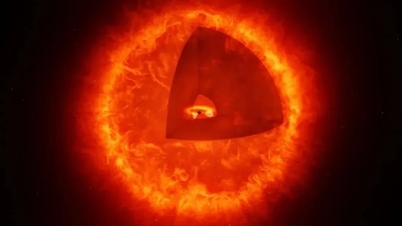


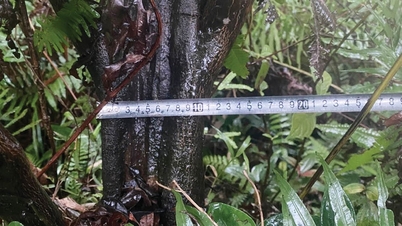

![[Video] Warning of high-tech criminals appropriating assets from cyber security incidents at CIC](https://vphoto.vietnam.vn/thumb/402x226/vietnam/resource/IMAGE/2025/10/1/9e967e621dc240bfbb70e926d503a177)
















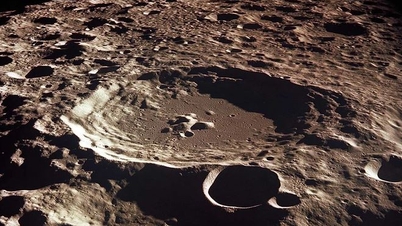
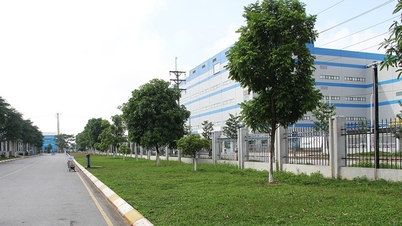


![[Photo] President Luong Cuong receives President of the Cuban National Assembly Esteban Lazo Hernandez](https://vphoto.vietnam.vn/thumb/1200x675/vietnam/resource/IMAGE/2025/9/30/4d38932911c24f6ea1936252bd5427fa)
![[Photo] The 1st Congress of Phu Tho Provincial Party Committee, term 2025-2030](https://vphoto.vietnam.vn/thumb/1200x675/vietnam/resource/IMAGE/2025/9/30/1507da06216649bba8a1ce6251816820)
![[Photo] Panorama of the cable-stayed bridge, the final bottleneck of the Ben Luc-Long Thanh expressway](https://vphoto.vietnam.vn/thumb/1200x675/vietnam/resource/IMAGE/2025/9/30/391fdf21025541d6b2f092e49a17243f)



























































Comment (0)